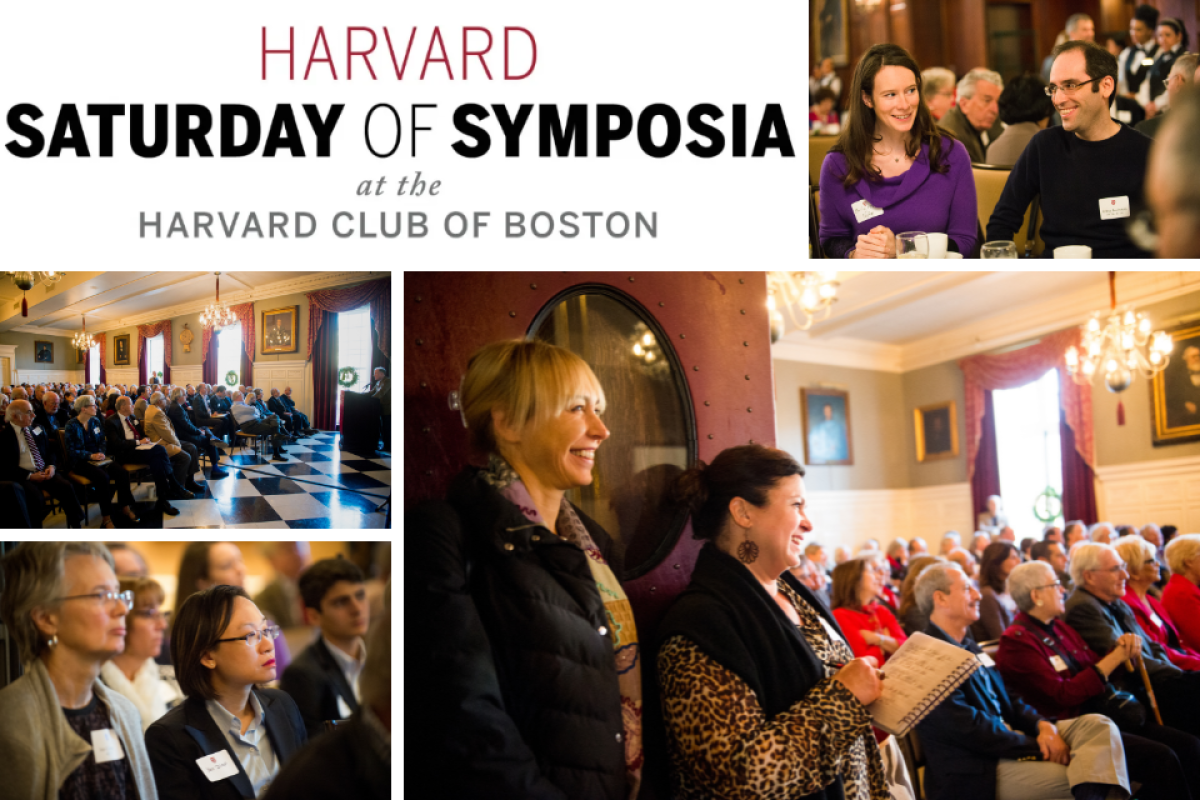Program
In Person Paid Programming
Saturday, December 2nd, 2023
Harvard Club of Boston, 374 Commonwealth Avenue, Boston
8:30 a.m. to 9:15 a.m.
Registration and Coffee, Tea, and Muffins
Faculty Lecture — 9:15 a.m. to 10:15 a.m.
Guy-Uriel Charles, Charles Ogletree, Jr. Professor of Law and Faculty Director, Charles Hamilton Houston Institute for Race & Justice
Faculty Lecture — 9:15 a.m. to 10:15 a.m.
The Bold Move: Three Simple Science-Based Steps to Move Boldly Through Change
Dr. Luana Marques, Director and founder of Community Psychiatry PRIDE at Massachusetts General Hospital and an Associate Professor in Psychology at Harvard Medical School
Change is hard, and seemingly more prevalent than ever. Since the COVID-19 pandemic, companies throughout the world have shifted the way they work, and millions of individuals have changed jobs. On the home front, transitions in relationship status, friendships, and living situations happen multiple times throughout our lives. Each transition—even the best kind—creates stress and instability that threatens wellbeing. Moving forward requires identifying the habits that hold us back and employing skills to get where we want in life. This action-oriented presentation on The Bold Move™ empowers audience members to overcome the one common obstacle preventing them from reaching their goals so they can move boldly through change, discomfort, and stress.
10:15 a.m. to 10:45 a.m.
Break
A brief recess to grab some refreshments and connect with your fellow alumni.
Faculty Lecture — 10:45 a.m. to 11:45 a.m.
Climate Disruption: A View from the Humanities
James Engell AB '73, PhD '78, Gurney Professor of English Literature and Professor of Comparative Literature
Drawing on 20+ years of work on climate issues, Professor Engell will address intergenerational justice, as well as climate justice between those with wealth and those without, both internationally and within nations. He will present a brief case study of developments in the state of Montana, now his primary residence. He currently co-teaches “Climate Crossroads” with Professor Jim Anderson. This course recognizes that irreversible climate disruption poses an unprecedented challenge to the stability of all societies. The course asks, What are the scientifically viable pathways to a future that is sustainable and just?
Faculty Lecture — 10:45 a.m. to 11:45 a.m.
Designing Interfaces for Human-AI Communication
Elena Glassman, Assistant Professor of Computer Science, Harvard John A. Paulson School Of Engineering And Applied Sciences
While we don’t always use words, communicating with an AI is a conversation—with ourselves as well as with it, a recurring loop with optional steps depending on the complexity of the situation and our goals. Any conversation we have with AI may include (a) forming our intent, (b) expressing that intent, (c) the AI performing inference to resolve its ambiguities, (d) the AI presenting its inferences back to us, and (e) us possibly recognizing that the AI got it wrong! In the process, we may update our notion of the AI’s abilities, the world it is operating in, and what we actually want. Prof. Glassman will break this conversation down into understandable pieces using popular AI systems and interfaces already familiar to the layman, so that the audience can see and describe for themselves why AI systems can be so wonderful—and sometimes so frustrating to use!
Lunch & Keynote Address — 12:00 p.m.
Going Public
Sarah Whiting, Dean and Josep Lluís Sert Professor of Architecture, Harvard Graduate School of Design
While we associate the expression “going public” either with the public disclosure of something that was previously only private or with a private company’s IPO (initial public offering), the design world is, arguably, perpetually going public – design’s patron might be a specific person or entity, but design’s audience is public. In this talk, I’ll touch on what being public means for design and what our contemporary changing public realm might mean for design’s future.
2:00 p.m.
Program Concludes
Thank you for joining us and for all you do for the Harvard community, we hope to see you next year!
Harvard Club of Boston Member Price per member: $57 (member fees not included)
Non-Member Price per person: $75
Continental breakfast, all Harvard faculty presentations, and three-course luncheon are included for this in-person program at the Harvard Club of Boston.
Register Now






